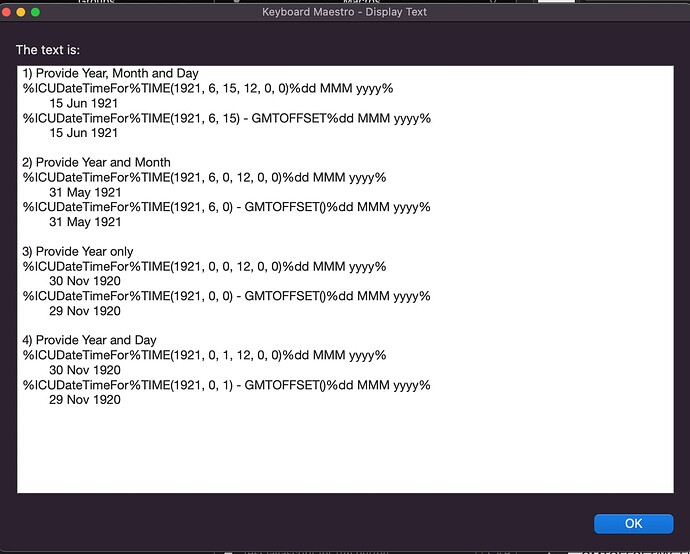I have read all the manual, wiki and discourse articles regarding dates and I think I understand it pretty well (thanks to all the authors). However, I have a question about GMT offset versus using midday and the differences.
Here is a quick macro that simply displays what I don't understand:
Testing Date Formats.kmmacros (5.1 KB)
and here is a screenshot of the output:
In case 1, where I provide Year, month and day using either Midday or GMTOFFSET() gives the expected result
In case 2 where I omit the day, the same is true, but the day=0 has set the output to last day of the previous month (may 31 in this example) which makes sense to me
In case 3 where I only supplied the year, the result appears to be the last day of the last month of the prevoius year and then the last day of the month before that (which would be 30 Nov) which would be consistent. BUT the midday and GMTOFFset give differing results.
The same was true in case 4 where I provide year and day but not month)
So my question is why is using GMTOFFSET or midday giving different results in some cases but the same in others. I realize that this is a rather picky question, but I'm using this for genealogy where it is common to not know full details of the date and I want to be sure that I'm not biassing the information.
Thanks, Dave
So I think I answered my own question. GMTOFFSET will give a different apparent date depending on the time its run i.e. if my local date and GMT date are the same or not right now, whereas using midday is fixed. Am I right or still wrong?
